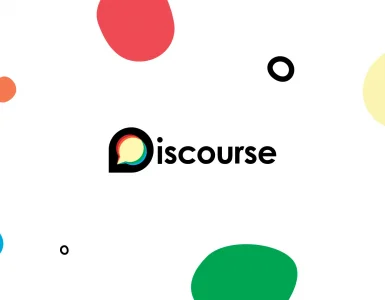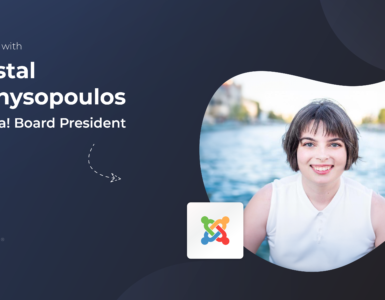Oliver Lindberg is the founder & curator of Pixel Pioneers, a popular web development & UX/UI conference. He is also an award-winning editor and content consultant, with experience across the digital marketing landscape.
We were thrilled that Oliver was able to take some time to speak to us about how he got started in the web industry, what it’s like curating & running a conference, and his thoughts on how AI will change the industry.
Hi Oliver, thanks for speaking with us today. Can you start off by explaining how you got started in the web industry?
My background is in journalism, and this year I’m celebrating my 20th anniversary in the web industry!
I first got involved with it through my time on .net magazine, which started as a kind of fanzine for the internet before it evolved into the leading print publication for web designers and developers.
I was its editor for a few years and as a brand extension also co-founded a conference for web designers called Generate. We did editions in London, New York, San Francisco and even Sydney.
In 2016, I decided it was time for me to start my own thing and went freelance.
Looking back, the timing was perfect: Both the magazine and the conference folded right at the beginning of the COVID-19 pandemic.
By the time I ventured out on my own, I had fallen in love with the web community. I really enjoy curating and producing engaging, useful content that connects with people all over the world. And that’s what I now do as an independent editor, content consultant, and conference organiser.
Congratulations on the 20-year anniversary! So, for those who aren’t familiar, how would you describe Pixel Pioneers?
Pixel Pioneers is an affordable community conference for front-end developers and UX/UI designers that helps them build better websites or apps and become better at their jobs. This June we ran our 6th edition already!
And where did the idea for Pixel Pioneers come from?
I love bringing people together for in-person events, but a lot of industry conferences are very expensive.
I wanted to create an affordable conference and bring it to the doorstep of a vibrant tech community.
It’s important for me to create an event that didn’t just leave attendees inspired but that they left with lots of practical takeaways that they could apply straight away on their return to the office.
We therefore have a Call for Speakers that’s open all year round, and I personally review each speaking proposal and hand-craft the schedule until the mix is just right.
Web dev and UI/UX can be quite broad topics, how do you cater to different experience levels when planning an event like this?
Diversity is an essential part of Pixel Pioneers, and this applies to the speakers, the attendees, and the topics alike.
We make sure that the talks are accessible to all experience levels, from beginners to pros, and that there is a variety of topics covering all kinds of aspects related to front-end development and UX/UI design.
It’s nice to see developers attend with designers as it improves collaboration between the two teams.
To broaden the range of the attendees, we also offer a massive ticket discount for students and run a diversity scholarship scheme that enables members of underrepresented or marginalised groups in tech to attend the conference free of charge.
You mentioned that you’ve now run 6 editions of Pixel Pioneers, over that time, how have you seen the conference space change? I imagine covid had a significant impact?
During the pandemic I had to put Pixel Pioneers on pause for a couple of years. So it was amazing to see the community come out again in person when we restarted the conference, and in 2023 we even sold out!
However, COVID and the big waves of layoffs we’ve since seen in the tech industry have had a significant impact on conferences – especially smaller, independent ones like Pixel Pioneers.
Many events didn’t come back or were cancelled due to skyrocketing costs and poor ticket sales.
Education budgets have been slashed, and at the same time social media isn’t what it used to be, and so we have to do more – and more varied – marketing to get the word out about the event.
Independent events also rely on sponsorships, both to help cover the costs and to keep the ticket price low, and I’m hugely grateful for 20i’s continued support over the last few years.
I do think that it’s cyclical: When the economy is booming again, education budgets will go up as well.
And while we’ve sadly lost many great events, I believe there’s always space for smaller community events as their atmosphere is so much more enjoyable as what you experience at the big corporate conferences.
Learning together and the chats that happen in the breaks that can lead to new friendships, relationships, and even new jobs and projects – that’s what a community conference is all about.
Being in the web space, it’s hard to ignore the rise of AI. We recently ran a survey which showed that 90% of web designers, and 82% of devs use AI in their work on a weekly basis – what do you think the future holds for the industry with regards to AI?
There’s been a lot of hype around AI but I don’t believe that it’ll make designers and developers redundant.
In fact, AI is already creating some new jobs (such as the role of the ‘AI engineer’) and tools like ChatGPT, GitHub Copilot, and Adobe Firefly can significantly boost our productivity.
Machines have no soul, of course, so we still need people to add a unique human touch to whatever AI is generating.
Ethics are massively important, too, and as AI is prone to errors and bias, we also need to employ critical thinking and fact check anything that AI returns to our prompts. This means not treating AI-generated outputs as sources of truth but using AI to augment our work instead.
For more on the impact of AI on web design and development, watch Christian Heilmann’s excellent keynote from last year’s Pixel Pioneers conference:
What is a piece of advice or wisdom you would share with web designers/developers based on your experience?
Never use a shiny new tool at the expense of the user experience.
There are many fantastic tools available for web design and development, but it’s important to test how users experience the websites and apps we build.
Both web designers and developers need to ensure sites are accessible for anyone, considering slower devices and internet connections as well as permanent and temporary impairments like when you’re out and about and the sun is shining onto your phone.
Optimise your images and use less JavaScript for a start – a faster website will not only make customers happier and lead to more conversions, it’s also better for the environment.
Very sound advice! And finally, what are you most excited about currently in the web and UX space?
Sustainable web design and development is finally getting the recognition it deserves and needs.
Many people still believe digital is good for the environment, but in fact a lot of energy is required to power the experiences we access online.
Every byte counts, whether you’re using social media, browsing the web, or accessing AI and video streaming services, which are especially data heavy.
To put it in perspective: If the internet was a country, it would be the fourth largest polluter in the world. Its carbon emissions are equivalent to the output of the entire aviation industry.
I’m passionate about helping raise awareness of the carbon footprint of the internet, and how to make digital services more sustainable. There are some great tools out there, like the Website Carbon Calculator (which measures a website’s environmental impact) and the Digital Declutter Toolkit (which helps you measure and reduce the carbon emissions of your entire business).
I also highly recommend Branch Magazine, a free-to-read online publication by the Green Web Foundation, and – an ebook I put together myself with the help of some great authors – The Sustainable Ecommerce Handbook.
Sustainability is certainly something we should all be aiming for, and we take it very seriously ourselves. Thanks again for your time, before you go, where can people go to follow you or get in touch?
You can mostly find me on LinkedIn and occasionally still on Twitter/X, and we also have dedicated Pixel Pioneers accounts on LinkedIn and Twitter/X.
To stay up to date with the latest Pixel Pioneers news, sign up to the newsletter. And if you want to find out when tickets go on sale for Pixel Pioneers 2025 – which will take place on Friday, 13 June – you can already register interest. Hopefully, see you there!







Add comment